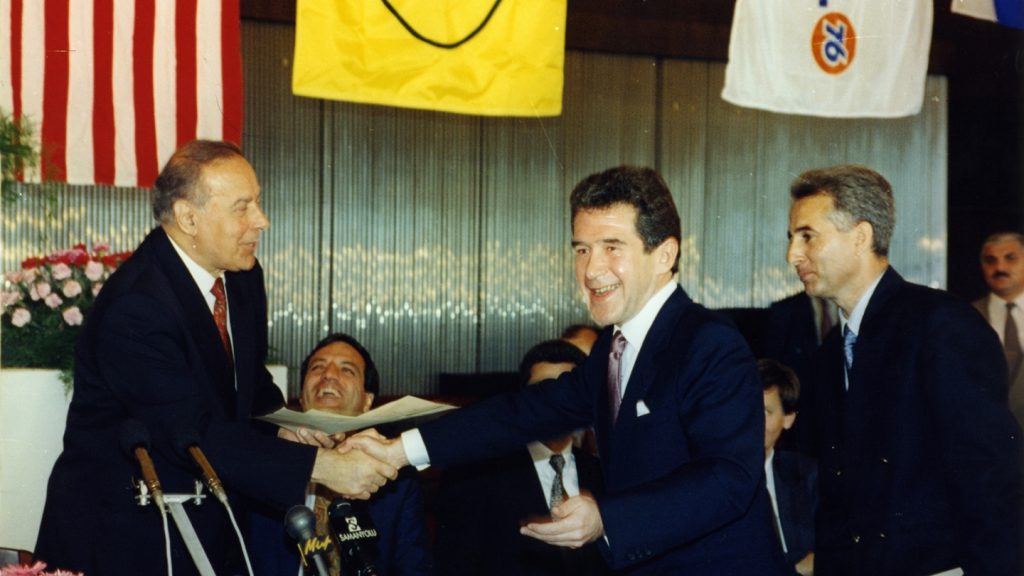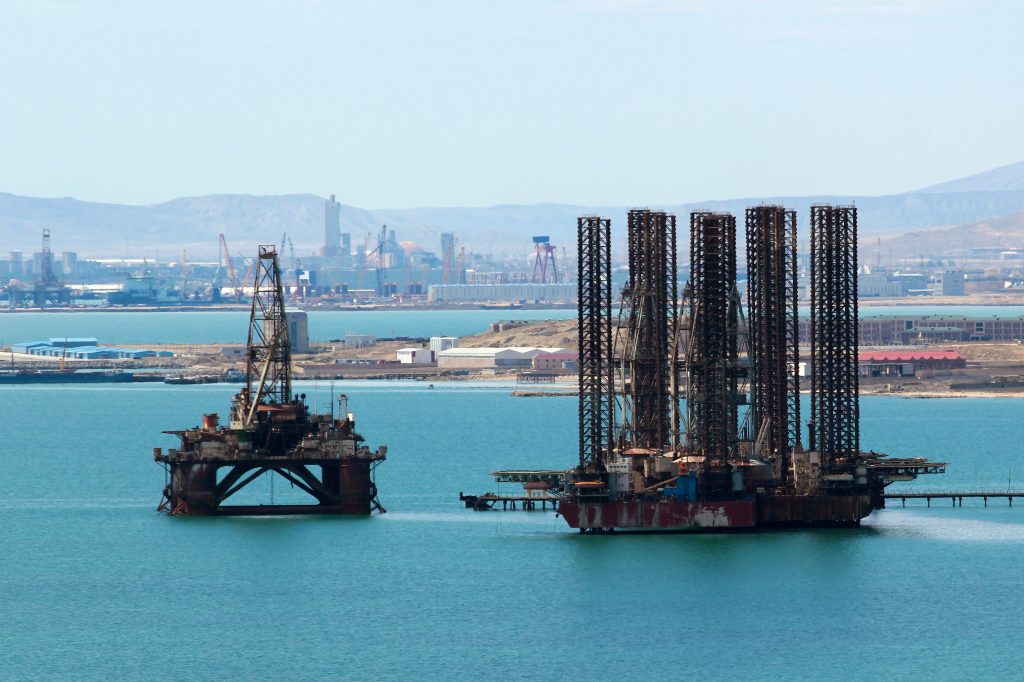The “Contract of the Century” has become a political and economic breakthrough for Azerbaijan in the 21st century. Undoubtedly, first of all, this is the merit of Heydar Aliyev, the creation of his mind, will, energy. Therefore, we will tell you about this epochal event, which has reverberated in the whole world, in detail.
On February 4, 1994, the President of Azerbaijan, Heydar Aliyev, issued an order “On accelerating the development of offshore oil and gas fields in Azerbaijan.”
This strategic document formed the basis of the negotiations that the state oil company of the country (SOCAR) conducted with a consortium of the world’s largest firms. As a result of these negotiations, on September 14, 1994, the President signed a decree. It assessed the economic, social, political significance of the project.
SOCAR President Natik Aliyev (not a son, not a brother, not a matchmaker – i.e. no relation of Heydar Aliyev) was instructed to sign a contract on the joint development of the Azeri, Chirag fields — the deep-water part of the Gunashli field — and on shared distribution of oil products between SOCAR and nine foreign companies, including Russian LUKOIL.
Previously, Azerbaijan had refused to include LUKOIL, as well as Iranian and French companies, in the consortium.
The official signing of the contract ceremony took place on September 20, 1994, in the Gulustan Palace. Ministers and parliamentarians, deputies and entrepreneurs from the United States, Russia, Great Britain, Türkiye, Norway had arrived in Baku.
“Oil is the greatest national wealth of the Republic of Azerbaijan and the Azerbaijani people,” said Heydar Aliyev addressing the guests. “That is why Azerbaijan is called the Land of Fire,” he added.

He proudly recalled the history of oil production in the republic and appreciated the contribution of Azerbaijani oilmen to the victory over fascism during World War II.
“Our oilmen took an active part in the development and exploitation of new oil fields in every part of the Soviet Union. It is no coincidence that the newly explored and developed oil fields, thanks to their efforts and work, were called “the Second Baku”, “the Third Baku”, “the Fourth Baku”.
“The Azerbaijani oilmen have immeasurable services in the development and exploitation of Russia’s largest Siberian and Tyumen fields, and the creation of powerful oil and gas complexes.
“I think that it is necessary to bring this fact to the attention of our guests and recall it in front of the Azerbaijani people. Since it is the pride and the glory of the Azerbaijani people, which speaks about the achievement of our people, our oil workers in the world economy.”
So spoke President Heydar Aliyev, addressing the country, and his words were echoed not only in the beautiful hall full of shining lights of the Gulustan Palace, but also in every house throughout the republic, because it was about the fate of the national property.
“Frankly speaking, by no means all the wishes of the Azerbaijani side were reflected in the contract,” the President continued his speech. “But we understand that in any contract the interests of both parties must be taken into account.
“The consortium of Western oil companies sought to ensure their interests, and the State Oil Company of Azerbaijan made efforts to ensure the national interests of the Republic of Azerbaijan. I can say that as a result of great intense work and high responsibility of both sides, a contract, which meets the interests of both parties, has at last been worked out.”
On December 2 of the same year, 1994, the Contract became a law. Hard work began, or rather, continued, at offshore drilling rigs and in laboratories, in offices and at oil pipelines through Russia and Georgia.
This article is an extract on “Heydar Aliyev” from the series “The Life of Remarkable People” by Viktor Ivanovich Andriyanov
Main image, top, of an oil platform off the Caspian sea coast near Baku, Azerbaijan, Dec. 2018. Photo © aquatarkus / iStock





